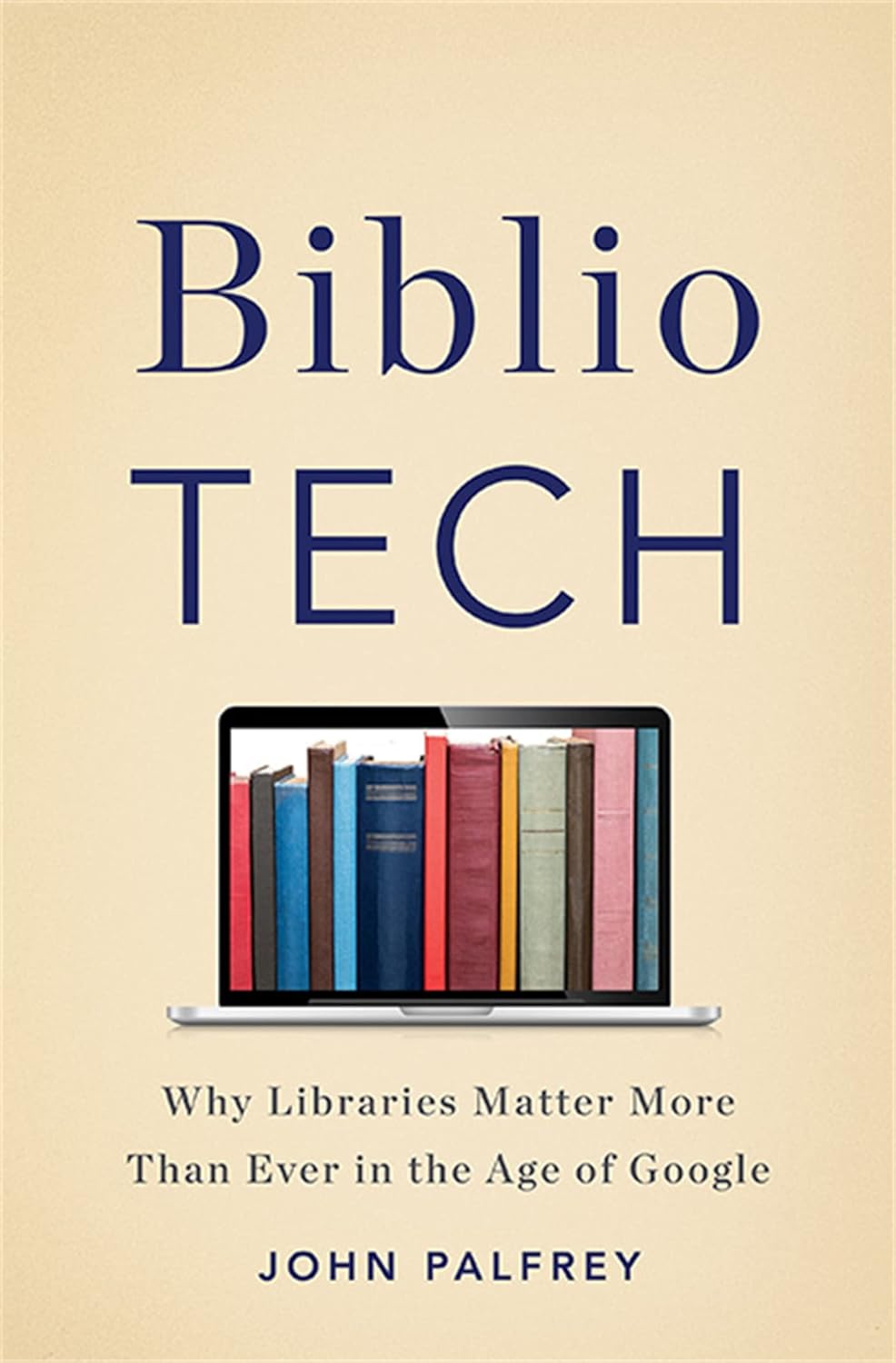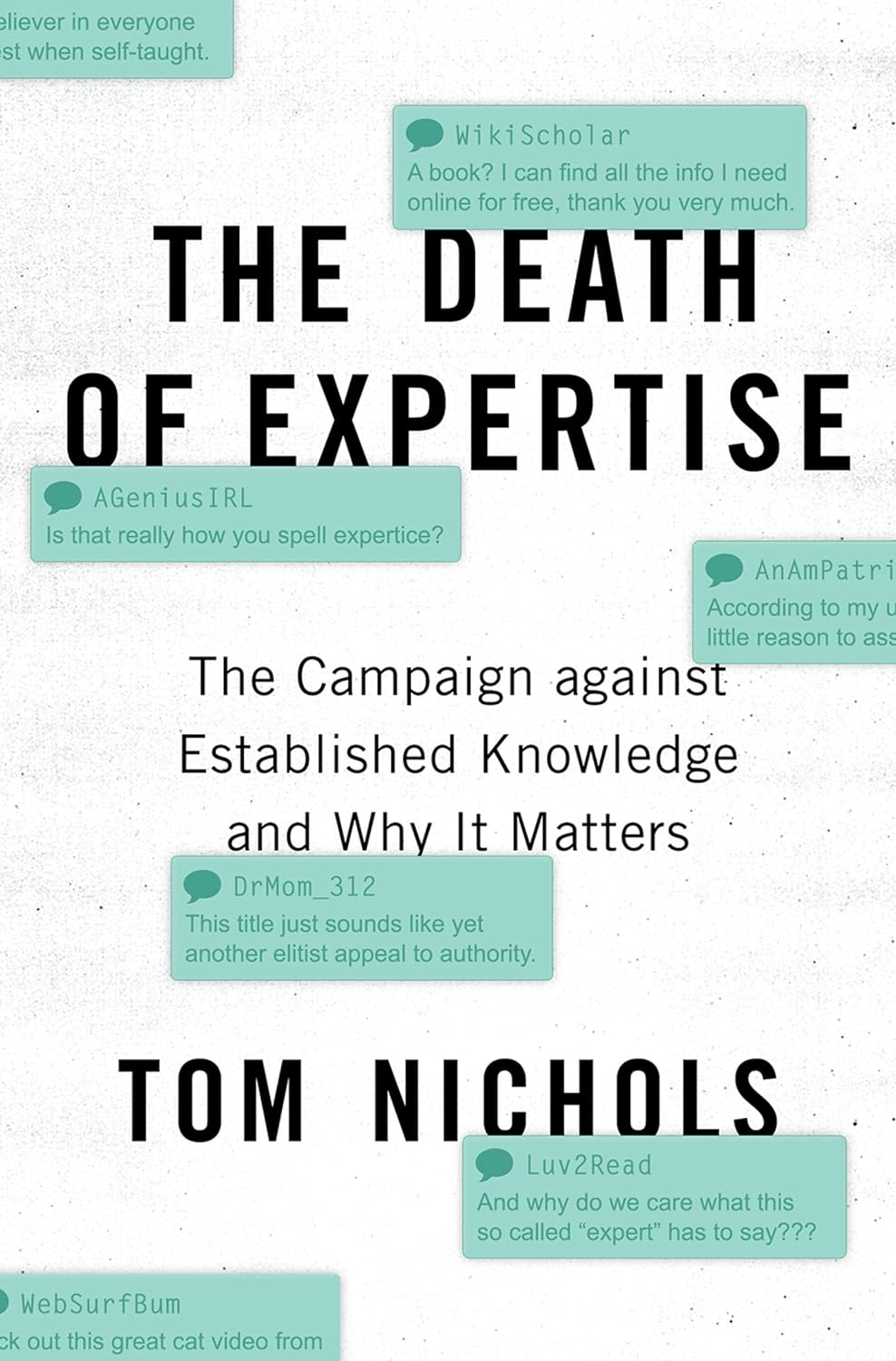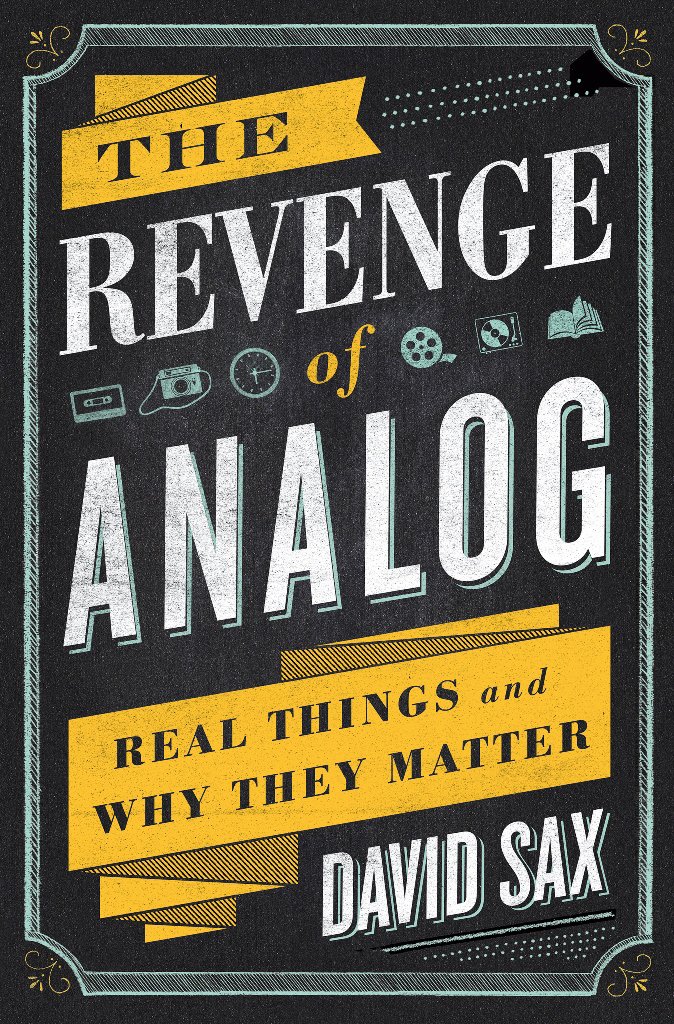The subtitle of BiblioTECH neatly summarizes the intent of the book "Why Libraries Matter More Than Ever in the Age of Google". On the surface you may be asking that question, I know I didn't use the library much outside of taking my kids sometimes until the last 18 months. BiblioTECH by John Palfrey is all about the problems that are facing libraries today, and ends up with some suggestions about what they can do to combat these issues and stay relevant in society today.
Let's cover a few of these issues.
We're Going Digital
Probably the most common theme through the book is that we're going digital. Many times Palter cites the rise in ebook borrowing and ebook purchasing. While in some ways I agree, I also remember Revenge of Analog which showed a return to analog media consumption. The Revenge of Analog only came out a year later than BiblioTECH so...who is right? I'm not sure I have the answer.
I can speak to my habits. For a number of years I was only purchasing books on Kindle. Then I continued to encounter ways in which the format wasn't serving me. It was harder to have 3 books open and reference between them. Finding highlights, or other things I remembered in a book was also harder to do. Then I read about digital bookstores closing and orphaning media.
The truth is, that you don't own your ebooks. You simply purchased a license to read it, which can be revoked, or changed. The only thing that publishers can do is come into your house and grab your books off the shelf and take them away. Now I may read a book on Kindle if I'm not sure about it and have already purchased it in years past. I may also borrow it from the library if they have a copy of it. Books I want to keep long term and reference though are purchased in physical copy to head into my growing library.
Digital Stuff is Harder to Preserve
One of the themes throughout the book is the idea that digital library inventory is harder to preserve than physical books are. Sure bits take up less space, but they rot. Yes if you have a stack of CD's around, some of them are just dead after a few years. Same with hard drives, and all other media. That means libraries need to invest in IT infrastructure and staff that know how to manage them.
Until recently, many librarians were not trained to handle IT level concerns. They were specifically trained in caring for physical media and helping people find that physical media.
Then we look at the format changes that happen with digital media. We've all found some random disk around that had files from...say Lotus123...that we couldn't open anymore. Libraries also deal with this and need to invest in moving formats forward. Unfortunately, they are also hampered by the restrictive agreements that publishers put on digital copies of media[^Page 186]. Often a library is not allowed to bring that investment in a digital book forward with a new format.
This is contrary to physical media, which is goverened by first sale doctrine. That means they can purchase a copy of a book and then do what the want with it. Publishers have no say in the use after it's been purchased. It can be leant out, sold, or whatever.
With digital formats publishers are even starting to take a bigger bite out of libraries with restrictions on letting new releases out in digital format. As I said, this doesn't affect me much because I can simply purchase books that I need, but many don't have this option and with a rise in digital book consumption many people will be left out of books they may otherwise consume.
Librarians are Trained to Find Credible Resources
Unlike for-profit companies, for instance, librarians can help patrons sort credible from less credible information. In a world in which anyone can be a pamphleteer and a publisher, providing this service is central to librarian's comparative advantage.[^Page 142]
The advantage that Palfrey talks about here is over plain old search. In The Death of Expertise, Tom Nichols has this to say about the Internet:
It allows people to mimic intellectual accomplishment by indulging in an illusion of expertise provided by a limitless supply of facts.[^Death of Expertise Page 106].
While we think we have informed ourselves with some internet searching, the truth is that most of the time we've only gone deeper down the Dunning-Kruger Effect hole. This is where librarians can help us out as we need to assess good resources.
I'm reminded of my first big paper in my counselling program where I searched and search and mostly came up with articles from People magazine, or other less than rigorous non-academic sources. While I learned from that experience after a stern talking to, many don't and continue to take random grocery magazines as fact. Worse yet, they take any blog that's out there as truth without asking for credentials or citations of any thoughts.
Here we do have a saviour accessible to everyone, the librarian. Who can help you find accurate information.
Libraries Allow Serendipity
The library browsing experience is strongly associated with the concept of serendipity. There is something powerful about the idea that patrons will find on the shelves books they didn't expect to find.[^Page 207, 208]
One of the other points that I felt was the serendipity that a library allows. You walk down the stacks and find random books you have never heard of that become favourites. You don't get this purchasing on Amazon, or other online sellers. Sure there is the "also bought" section on listings, but sometimes that's a list of ads you can purchase. It's also much narrower because it's people that were already interested in a book you were interested in, and thus more likely to further Confirmation Bias.
While I've actually found this more as a stroll through a local bookstore, not everyone can purchase books that look interesting to them. Yes my local library may have a limited catalogue that is shared with many libraries in part of my province, but it's still a vast wealth of books I've never heard of and may be interested in.
Palfrey ends this book with 10 steps[^Page 226] that need to be taken to ensure the relevance of libraries into the future. Some of them are things that libraries themselves can do, like network with other libraries and share a catalogue[^I'm happy to say that my library does this in the Fraser Valley.]. Others are things that society must do, like funding libraries as Carnegie did.
For the items that take social reform and allocation of funds, I wonder how that will be done. Talking with the parents I see at my child's school, most of them say they value a library, but when asked if they use it they don't. Are we really ready to give up some of the other comforts that our taxes pay for in favour of something that many adults view more with nostalgia than day to day utility? Heck, funding for schools is continually cut and it's our children we're educating. We can't even muster our sacrificial selves for our progeny in many cases.
Should you Read BiblioTECH by John Palfrey
While I think that John Palfrey leans far to hard on the digital only future of library media, he does accurately highlight many of the problems that digital resources provide to libraries. His 10 steps at the end even provide some fashion of roadmap for society at large to follow so that they can help bring their libraries into the future with them.
If you're not interested in the issues that libraries are currently facing, then this isn't the book for you. If you are interested in understanding what libraries are dealing with day in/day out then this is a great book. I'd recommend adding this and [The Library Book](http://(https://curtismchale.ca/2020/03/20/that-time-los-angeles-lost-over-400-000-books) to your reading list.
Purchase BiblioTECH: Independent Publisher | Amazon | Book Depository


